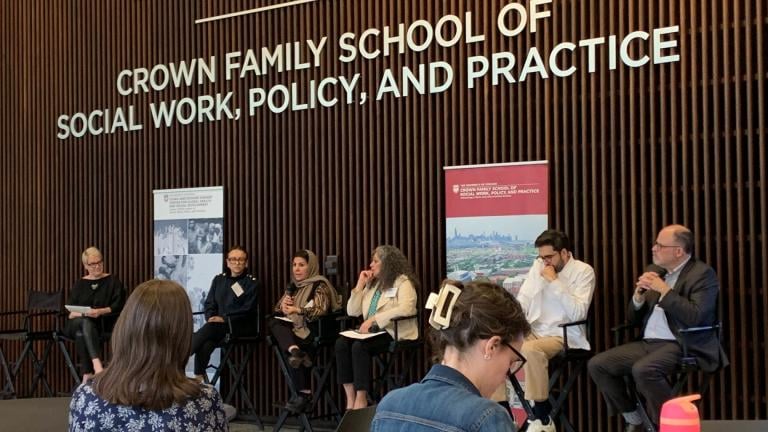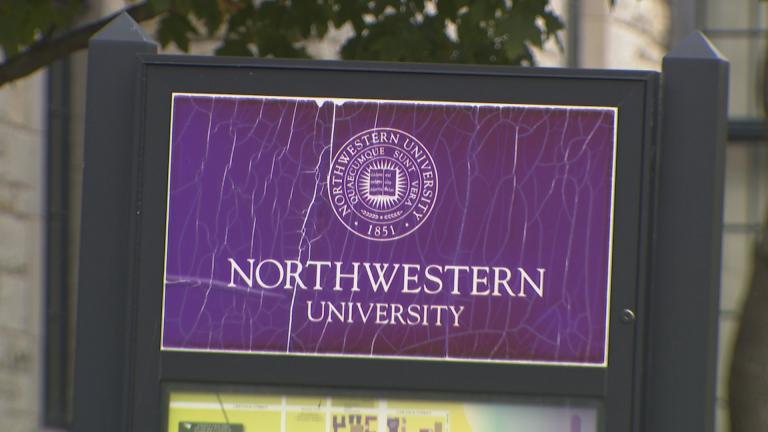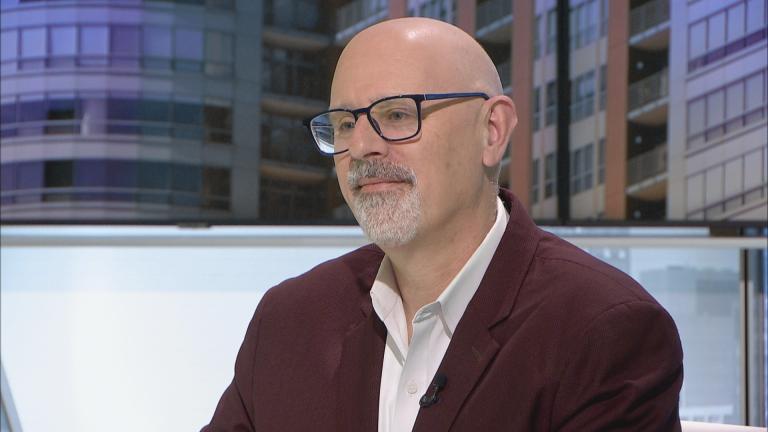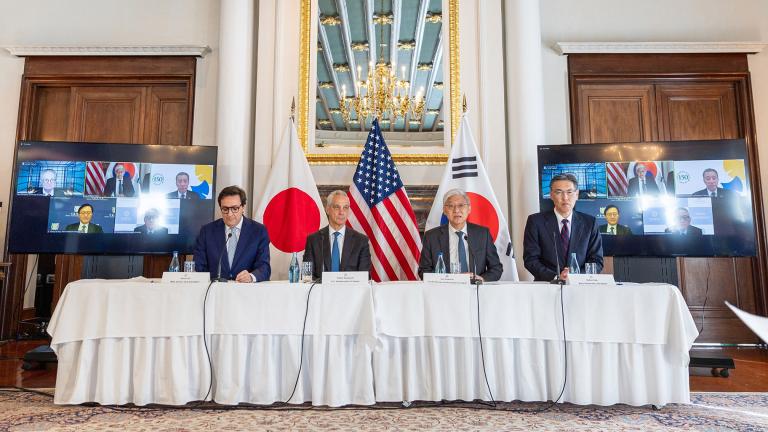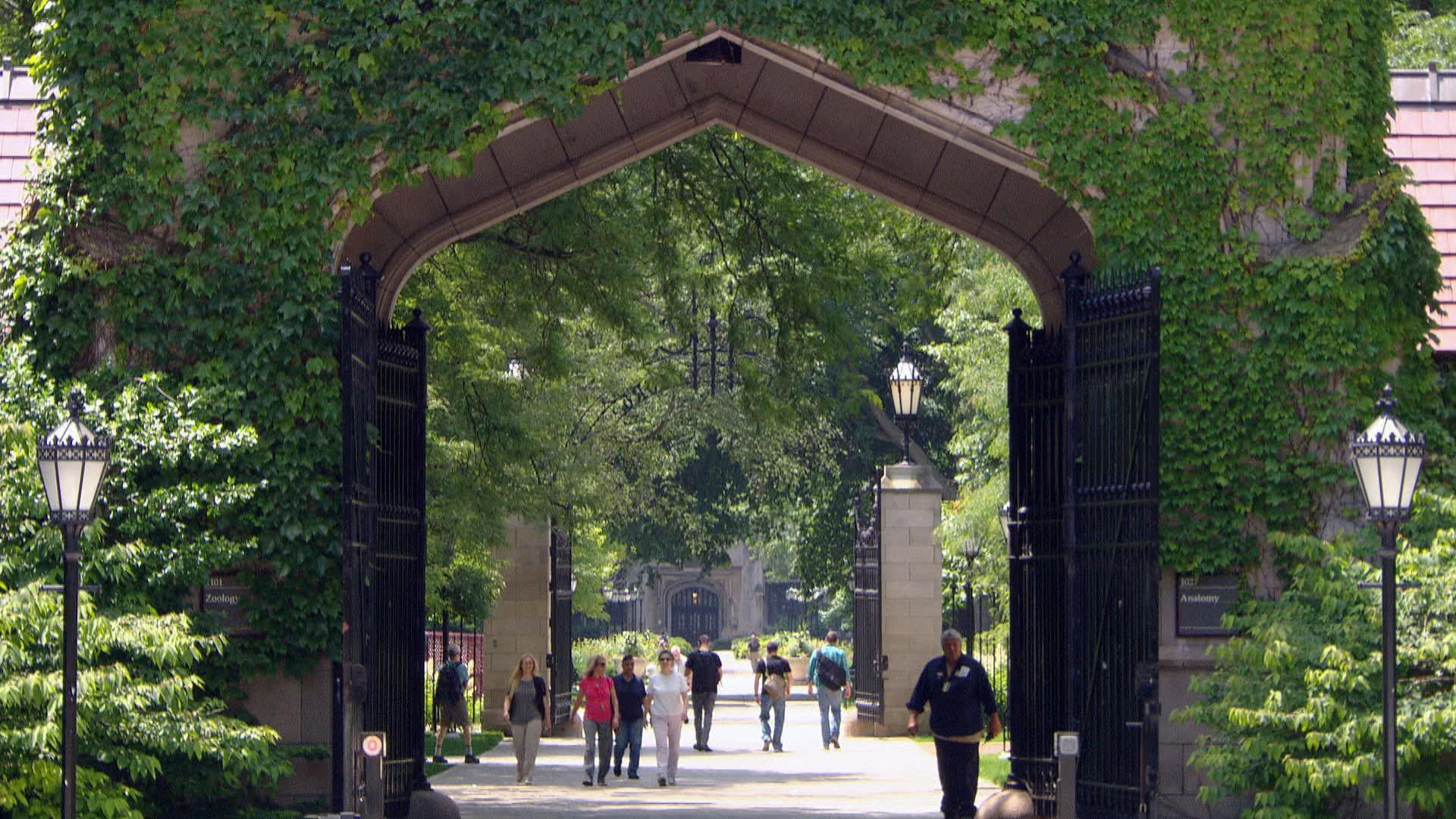 (WTTW News)
(WTTW News)
The University of Chicago is launching a new initiative that aims to promote free inquiry and expression in higher education and beyond.
The creation of the Forum for Free Inquiry and Expression comes in an era of social media and polarization, as freedom of expression becomes a “hot-button issue” on college campuses, said faculty director and law professor Tom Ginsburg.
The Forum’s mission of “understanding, practicing and advancing” free inquiry and expression takes form with speaker panels Thursday and Friday as part of the initiative’s official launch, Ginsburg said.
The planned speakers include American Library Association Executive Director Tracie Hall, novelist and playwright Ayad Akhtar, social psychologist Jonathan Haidt and New York Times columnist Ross Douthat. Discussions will cover topics such as book bans, higher education, politics, artificial intelligence and social media.
Ginsburg said free inquiry is about researchers pursuing important questions for society, which may sometimes involve taking approaches others don’t agree with, while free expression in an academic context is about having the conversations to pursue that inquiry.
“We tend to think of free speech as this idea that I can stand on the soapbox outside and say whatever I want, and the government can’t shut me up,” Ginsburg said. “In a university, we mean something slightly different. ... We need to be able to have deep conversations where we challenge each other’s ideas, but that requires conversation, it requires back and forth listening.”
Ginsburg, whose work focuses extensively on democracies, said some examples of the ongoing threats against free inquiry and expression include the termination of some professors both on the left and right for comments said in the classroom; the use of state power and legislation in red states to limit conversations about race and racism in American history; and donors at some universities threatening to withhold money in order to control what can and can’t be studied.
“We have this environment of very punitive measures, sensitivity is very high, but it’s used in a way to shut off valid inquiry in many cases,” Ginsburg said.
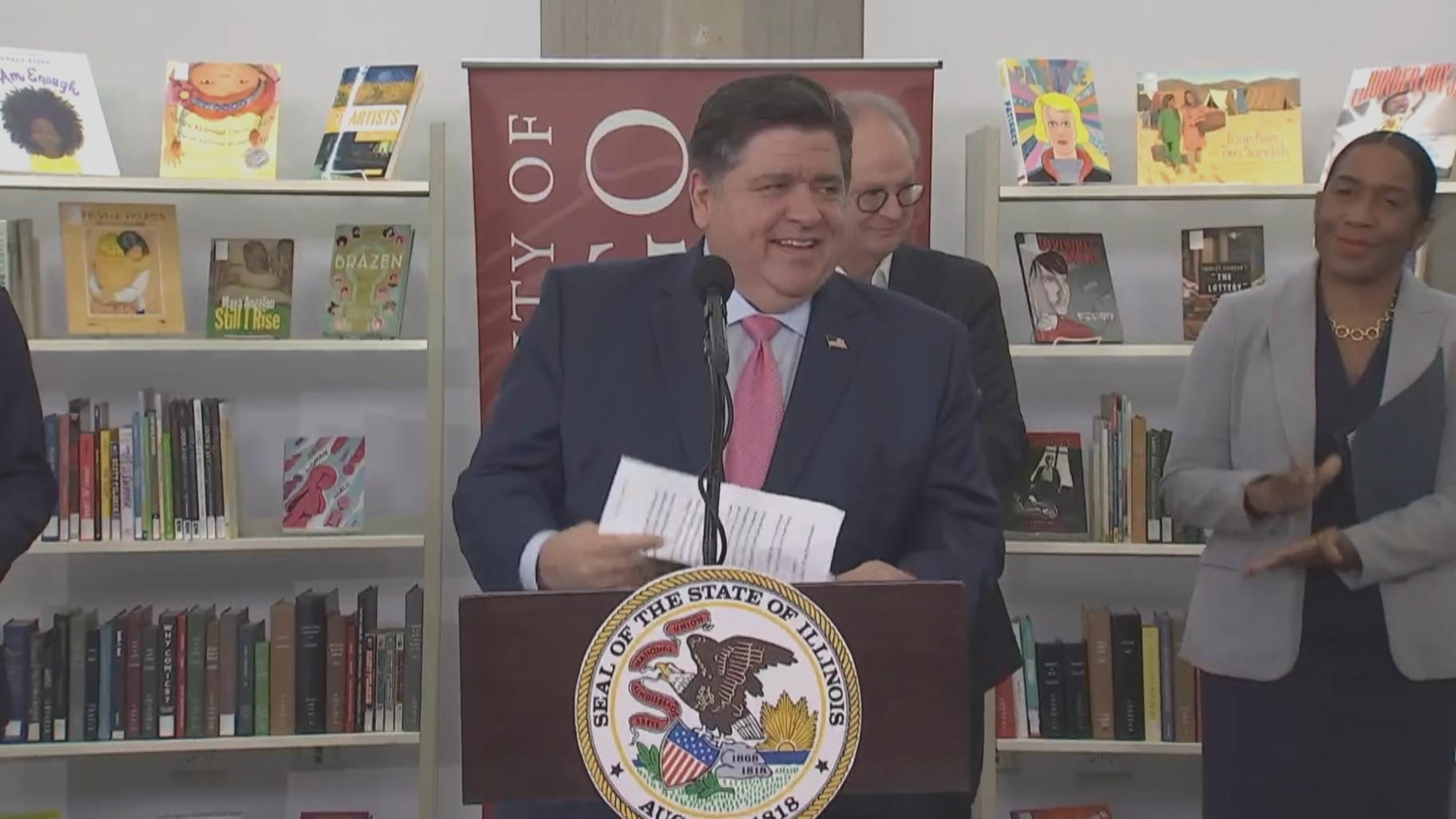 Gov. J.B. Pritzker and Lt. Gov. Juliana Stratton joined University of Chicago officials on Oct. 3, 2023, at a news conference announcing the university’s plan for a banned book collection. The Forum for Free Inquiry and Expression is partnering in that effort. (WTTW News)
Gov. J.B. Pritzker and Lt. Gov. Juliana Stratton joined University of Chicago officials on Oct. 3, 2023, at a news conference announcing the university’s plan for a banned book collection. The Forum for Free Inquiry and Expression is partnering in that effort. (WTTW News)
Beyond the speaker panels happening this week, the Forum is also partnering with the University of Chicago Library to collect more than 1,500 banned books that will be made accessible to the public. The announcement comes as the ALA continues to see an increase in attempts nationwide to censor books and materials in public, school and academic libraries.
Gov. J.B. Pritzker and Lt. Gov. Juliana Stratton joined university officials Tuesday at a news conference announcing the banned book collection.
“There are small mobs of people around the country and here in Illinois who are trying to use the terminology of freedom and saying that they’re protecting our children, but they use it as a veil for their bigotry, " Pritzker said at the news conference. “Even in the face of rising censorship, I have faith in the power of free speech and free thinking to overcome.”
The Forum is also sponsoring a banned films series in collaboration with Doc Films, a student-led movie theater and film society at the University of Chicago.
Ginsburg said part of the Forum’s work is to also provide students and faculty with tools to deepen their conversations and their own experience of expression.
“Principles alone aren’t good enough. We also need practice,” Ginsburg said. “The students coming in, even the faculty, don’t always have practice with being able to express themselves across political divides.”
Click here to learn more about this week’s speaker panels and to livestream the discussions.
Contact Eunice Alpasan: @eunicealpasan | 773-509-5362 | [email protected]

